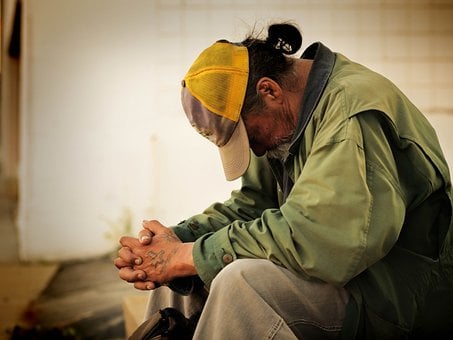Poverty has long been linked to shorter lives. But just how many deaths in the United States are associated with poverty? The number has been elusive – until now.
UC Riverside paper published Monday in the Journal of the American Medical Association associated poverty with an estimated 183,000 deaths in the United States in 2019 among people 15 years and older.
This estimate is considered conservative because the data is from the year just prior to the COVID-19 pandemic, which caused spikes in deaths worldwide and continues to take its toll.
The analysis found that only heart disease, cancer, and smoking were associated with a greater number of deaths than poverty. Obesity, diabetes, drug overdoses, suicides, firearms, and homicides, among other common causes of death, were less lethal than poverty.
“Poverty kills as much as dementia, accidents, stroke, Alzheimer’s, and diabetes,” said David Brady, the study’s lead author and a UCR professor of public policy. “Poverty silently killed 10 times as many people as all the homicides in 2019. And yet, homicide firearms and suicide get vastly more attention.”
Another finding is that people living in poverty – those with incomes less than 50% of the U.S. median income — have roughly the same survival rates until they hit their 40s, after which they die at significantly higher rates than people with more adequate incomes and resources.
The analysis estimated the number of poverty deaths by analyzing income data kept by the Institute for Social Research at the University of Michigan and death data from household surveys from the Cross-National Equivalent File. Deaths reported in surveys were validated in the National Death Index, a database kept by the National Center for Health Statistics, which tracks deaths and their causes in the U.S.
Their findings have major policy implications, the researchers say.
“Because certain ethnic and racial minority groups are far more likely to be in poverty, our estimates can improve understanding of ethnic and racial inequalities in life expectancy,” the paper reads.
Additionally, the study shows that poverty should get more attention from policymakers, said Brady, the director of UCR’s Blum Initiative on Global and Regional Poverty.
Beyond the emotional suffering of surviving family members and friends, deaths are associated with a great economic cost. Experts agree that a death is expensive for a family, community and government, Brady said.
“If we had less poverty, there’d be a lot better health and well-being, people could work more, and they could be more productive,” Brady said. “All of those are benefits of investing in people through social policies.”
The paper is titled “Novel Estimates of Mortality Associated With Poverty in the US.” In addition to Brady, study authors include Professor Ulrich Kohler at the University of Potsdam, Germany, and Professor Hui Zheng at Ohio State University in Columbus.

